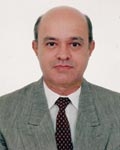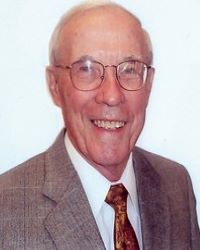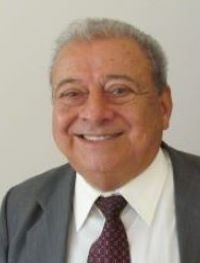
Edson Lobato
BRAZIL

Colin McClung
UNITED STATES

Alysson Paolinelli
BRAZIL
Edson Lobato’s research at the EMPRAPA Cerrado Research Center contributed to dramatically transforming Brazil’s once infertile Cerrado region into 40 million hectares of highly productive farmland. His extension efforts enhanced soil quality and counteracted water stress, contributing to farmers obtaining greatly increased yields in food and fiber production.
Colin McClung, working with the Rockefeller IRI Research Institute, discovered the precise combination of lime and fertilizers that could eliminate the aluminum toxicity of the soil in Brazil’s infertile Cerrado region. This would eventually transform 40 million hectares into highly productive farmland, with a potential for a 200 percent increase in crop yields.
Alysson Paolinelli, as Brazil’s Minister of Agriculture, provided critical leadership in transforming Brazil’s vast, once infertile Cerrado region into 40 million hectares of highly productive farmland. He developed policies and established research institutions and infrastructure that facilitated the efforts of farmers to open the Cerrado to crop production.
Full Biographies
Edson Lobato
Edson Lobato of Brazil was awarded the 2006 World Food Prize along with Alysson Paolinelli of Brazil and Colin McClung of the United States for the vital role each played in transforming the Cerrado – a region of vast, once infertile tropical high plains stretching across Brazil – into highly productive cropland.
Though they worked independently of one another, in different decades and in different fields, their collective efforts over 50 years unlocked Brazil’s tremendous potential for food production. Their advancements in soil science, extension, and policy leadership made agricultural development possible in the Cerrado, a region named from Portuguese words meaning “closed, inaccessible land.”
Lobato received his bachelor’s degree in agronomy engineering in 1964 from the Brazilian National School of Agronomy and his master’s degree in agronomy from Southern Illinois University in 1973.
In 1964, he began his career in soil fertility research through a program sponsored by the International Research Institute, the U.S. Agency for International Development, and the Brazilian Ministry of Agriculture. His work centered on phosphate inputs to improve soil fertility in the Cerrado soils, as well as the application of lime as a soil amendment.
Based on the outstanding talent he displayed, Lobato received a U.S. Agency for International Development fellowship in 1972 to study soil fertility in the United States. Upon his return to Brazil the following year, he was hired as a researcher at the newly established Brazilian Corporation of Agricultural Research (EMBRAPA). He was soon placed in charge of coordinating several EMBRAPA programs, including outlining a plan for the Cerrado Agricultural Research Center.
From 1975 to 2004, Lobato remained a central figure in soil fertility research and evaluation at the EMBRAPA Cerrado Center, serving in a variety of positions including technical director. According to former EMBRAPA President Silvio Crestana, Lobato’s work to enhance soil quality and counteract water stress “made it possible to incorporate the Brazilian Cerrado, the world’s last agricultural frontier, into food and fiber production.”
Lobato also led and advised other researchers at the EMBRAPA Cerrado Center in programs to evaluate the feasibility of projects to develop the Cerrado. He guided the center through an expansion of its work to include sustainable agricultural practices and the environmental impact of development.
Lobato collaborated with farmers and extension technicians to implement the technologies and practices pioneered at EMBRAPA. He authored more than 80 publications relating to soil fertility and soil management in the Cerrado and published Cerrado: Soil Correction and Fertilization, which became a standard reference for farmers, researchers and students seeking solutions to soil fertility problems.
Prior to Lobato’s work, the Cerrado was mainly unproductive brush and grassland, and Brazil had to import most of its food. But in the decades after he and his fellow scientists developed the agricultural production plan for the region, Brazil has become an important food exporter, greatly increasing its annual soybean production and producing over $40 billion worth of crops per year.
Professor Wenceslau J. Goedert of the University of Brasilia commended Lobato for “his knowledge and experience…that made possible the transformation of the Cerrado region into a major world food production area. His contribution to world food production is extraordinary.”
Colin McClung
Colin McClung of the United States was awarded the 2006 World Food Prize along with Edson Lobato and Alysson Paolinelli, bothof Brazil, for the vital role each played in transforming the Cerrado – a region of vast, once infertile tropical high plains stretching across Brazil – into highly productive cropland. Although they worked independently of one another, in different decades and in different fields, their collective efforts over 50 years unlocked Brazil’s tremendous potential for food production. Their advancements in soil science, policy leadership and extension made agricultural development possible in the Cerrado, named from Portuguese words meaning “closed, inaccessible land.”
McClung was born in 1923 in West Virginia. He earned his bachelor’s degree in agricultural science from West Virginia University in 1947 and his master’s and Ph.D. in soil science in 1949 and 1950 from Cornell University. He then began his career in agronomy research at North Carolina State College. In 1956, he joined the David and Nelson Rockefeller-funded International Basic Economic Corporation Research Institute (later known as the IRI Research Institute), which sought to improve soil conditions for coffee production and thus bolster the Brazilian economy. As part of this project, McClung initiated research on the soil degradation plaguing central Brazil, including the 300 million-acre Cerrado wasteland.
McClung believed Brazil to have potential as “a world leader in agriculture.” However, until his discovery of the precise application of lime and fertilizers that made its soils productive, the infertile Cerrado had been of little interest to Brazilian farmers, agribusinesses or government officials.
McClung’s studies showed that acidity, toxic levels of aluminum, and deficiencies of several micronutrients in the soil limited plant growth. Given this analysis, he tested the potential of dolomitic lime to eliminate the aluminum toxicity of the soils, supply calcium and magnesium, and modify the availability of other nutrients. Within a year, McClung’s laboratory, greenhouse, and field tests showed unprecedented promise for this treatment to support high corn, soy and cotton yields on Cerrado soils – 200 to 300 percent higher than yields from unimproved soils. His groundbreaking results were presented at a meeting of the Brazilian Soil Science Society in 1957.
These findings “had a pronounced effect on food production,” said Professor Eugene Kamprath of North Carolina State University. McClung’s research did away with the myth that the Cerrado was not suitable for intensive agriculture and set off a chain reaction of technical studies that increased food production and fueled substantial economic and social development in Brazil and other tropical countries.
Over the course of several decades and with the Brazilian government’s increasing support for agricultural research and extension, Brazil’s farmers began to apply McClung’s techniques throughout the Cerrado. They were able to produce sufficient crops not only to feed and sustain a growing population, but also to help Brazil emerge as an international leader in agricultural production. In 2007, Brazil ranked second in global production of soybeans – a crop whose yields in Brazil have increased 20 times since the development of the Cerrado.
Prior to McClung’s work, and that of his fellow laureates, Brazil had to import most of its food. But in the decades after the agricultural production plan for the region was developed based on his early research, Brazil has become an important food exporter, producing over $40 billion worth of crops per year.
As he brought his technical skills to bear on the soil infertility problems, McClung also provided leadership in inviting collaboration from the private sector and local investors. He convinced many local enterprises such as lime producers, fertilizer companies, and corn and soybean processors to provide funding, materials and other resources to the research projects that he led.
“Dr. McClung’s research permitted the opening of an area larger than the total cropland of the United States to intensive agricultural production,” said Professor W. Shaw Reid of Cornell University, “and it has stood the test of time.”
Alysson Paolinelli
Alysson Paolinelli of Brazil was awarded the 2006 World Food Prize along with Edson Lobato of Brazil and Colin McClung of the United States, for the vital role each played in transforming the Cerrado – a region of vast, once infertile tropical high plains stretching across Brazil – into highly productive cropland. Although they worked independently of one another, in different decades and in different fields, their collective efforts over 50 years unlocked Brazil’s tremendous potential for food production. Their advancements in soil science, policy leadership, and extension made agricultural development possible in the Cerrado, named from Portuguese words meaning “closed, inaccessible land.”
Paolinelli received his degree in Agronomy Engineering in 1959 at the agriculture college of the Superior School of Lavras in the state of Minas Gerais in Brazil. He began teaching there in the 1960s and was a catalyst of the school’s efforts to expand and improve its curriculum and faculty, secure funding, and bring the school into the national system of agricultural colleges as the Federal University of Lavras. From 1967 to 1971, he served as dean, during which time he encouraged faculty members to obtain technical education abroad.
In 1971, Paolinelli was appointed Secretary of Agriculture of Minas Gerais and served in that capacity until 1974. During this period, his long-held conviction of Brazil’s great potential for food production – specifically in the Cerrado region – began to be realized as he created policies, institutions and infrastructure to encourage significant development.
As Secretary of Agriculture in Minas Gerais, Paolinelli’s top priority was to dramatically increase support of agricultural research and training in that state. He created an agency to integrate all the agricultural teaching and research entities in Minas Gerais, and he encouraged universities to collaborate with farmers to improve agricultural practices. He cooperated with Brazilian and international credit agencies to hire more than 1,000 new technical researchers over three years.
Paolinelli also created a new model for rural credit to support integrated agricultural operations. Loans were made available at very low interest, with a grace period extended beyond one crop season and with payments allowing farmers to keep and reinvest a share of their profits. With this support for expanded research and agricultural production, large-scale development in the Cerrado was initiated.
As Brazil’s Minister of Agriculture from 1974 to 1979, Paolinelli oversaw the establishment and implementation of the Brazilian Corporation of Agricultural Research (EMBRAPA) as a model research and extension institution that improved and diffused technologies for advancing modern agriculture throughout the country. He also formed the Cerrado Center (CPAC) within EMBRAPA, which focused considerable resources on agricultural development in that region. With his ongoing support of research to improve and enhance agriculture, “He was the leader that farmers consistently turned to solve their problems and assist them in advancing agricultural and rural development,” said Eliseu Roberto de Andrade Alves, former president of EMBRAPA.
In 1974, Paolinelli initiated the Polocentro program to finance and develop agricultural production and rural communities on three million hectares across the entire Cerrado region. Within three years, that goal had been surpassed. To sustain further growth, Paolinelli attracted public, private and foreign investments to complement the federal government’s funds for developing the Cerrado. In 1978, he negotiated an agreement between Brazil and Japan to bring together financial resources to invest in research, extension and entrepreneurship enterprises to further the opening and settlement of the Cerrado.
Prior to Paolinelli’s work, Brazil had to import most of its food. But in the decades after his agricultural production plan for the Cerrado region was developed, Brazil has become an important food exporter, greatly increasing its annual soybean production and producing over $40 billion worth of crops per year.
Said Antonio Herminio Pinazza, Executive Director of the Association of Brazilian Agribusinesses, “As an agronomic engineer, farmer, rural leader, public official, and consultant in agribusiness, Minister Paolinelli has demonstrated visionary leadership, exceptional ability, and has justly earned the nation’s gratitude.”
Additional Links
The World Food Prize pays tribute to 2006 Laureate Dr. Colin McClung
2006 World Food Prize winners opened Brazil's "closed lands"


